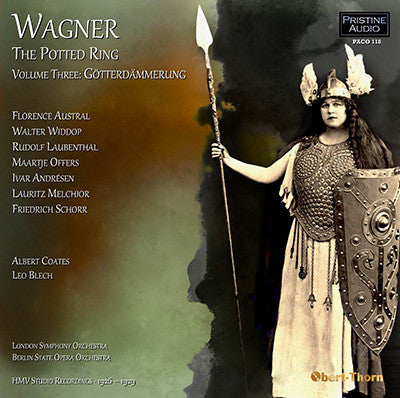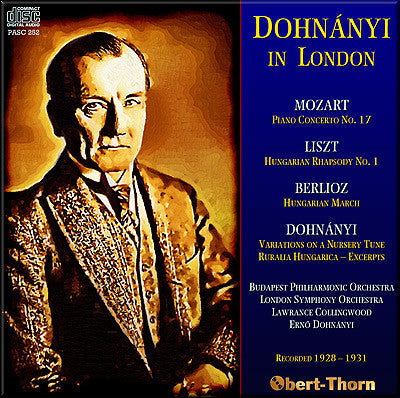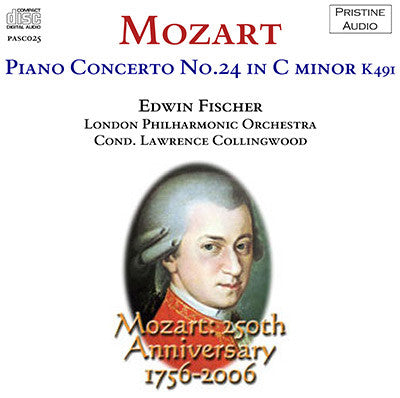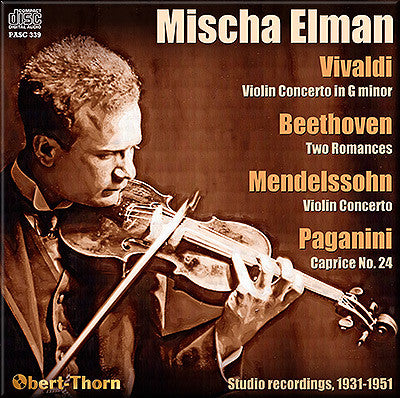Lawrance Collingwood
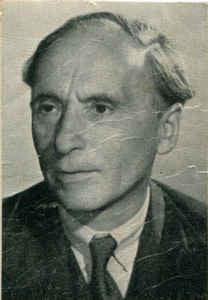
Lawrance Arthur Collingwood CBE (14 March 1887 – 19 December 1982) was an English conductor, composer and record producer.
Collingwood was born in London and attended Westminster Choir School, beginning his musical career as a choirboy at Westminster Abbey from 1897-1902. Around 1903 he attended High Wycombe Royal Grammar School. Appointed organist at St Thomas's Hospital and then at All Saints, Gospel Oak, he studied at the Guildhall School of Music and Exeter College, Oxford (1907–1911).[3]
In the autumn of 1911 he went to Russia and enrolled at the Saint Petersburg Conservatory where he studied under Alexander Glazunov, Maximilian Steinberg and Nikolai Tcherepnin. After graduating Collingwood returned to England in 1918 to begin military service but went back to Russia and worked for some years as assistant conductor to Albert Coates at the Saint Petersburg Opera. He also conducted at the Mariinsky Theatre. He also served as interpreter for Winston Churchill's expedition in support of White Russian forces in Northern Russia (1918-1919). His two piano sonatas, which show the influence of Alexander Scriabin, were published in Saint Petersburg.
In England, he built his reputation at first as a composer: his Symphonic Poem (1918) was presented by the Royal College of Music; he himself conducted its professional premiere at the Queen's Hall in 1922, and the work was later published. In 1920 Lilian Baylis appointed Collingwood as the chorus master for her opera company at the Old Vic in London. Despite the poor conditions he preserved and made a significant contribution to the improved musical standards at the company. He conducted opera at the Old Vic and Sadler's Wells Theatre, becoming principal conductor at Sadler's Wells in 1931.[6] His steady hand did much to establish Sadler's Wells as a viable alternative to Covent Garden. He gave early British performances of operas by Mussorgsky and Rimsky-Korsakov. His own first opera, Macbeth, was presented there under his own direction on 12 April 1934, with Joan Cross singing Lady Macbeth. Music from the opera had already been played in the Queen's Hall on 10 November 1927 and it would be revived in Hammersmith in 1970.[1] A recording of excerpts from Collingwood conducting Lohengrin during his Sadler's Wells years survives, with Henry Wendon in the title role, plus Joan Cross and Constance Willis, offering an example his work at the time.
In January 1934, he conducted the London Symphony Orchestra in a recording of the Triumphal March from Caractacus and the Woodland Interlude by Sir Edward Elgar, supervised by the composer himself by telephone from his sickbed before his death a month later.
Collingwood made his debut at the Royal Opera House in December 1936 with Humperdinck's Hänsel und Gretel. He conducted Sadler's Wells Opera around the UK during the Second World War in stressful and primitive conditions, and retired from the company in 1946. He was made a Commander of the Order of the British Empire in 1948.
Although most of his professional life was spent in Britain, Collingwood travelled to Berlin to supervise recordings by Menuhin and Furtwängler, and to oversee the 1956 Meistersinger conducted by Kempe. In 1950 and the following year he played a key role in recordings involving Casals, first in Prades then in Perpignan.
His second opera, The Death of Tintagiles, set to Alfred Sutro's translation of Maurice Maeterlinck's drama, was premiered on 16 April 1950. His other compositions include a piano concerto and a piano quartet.
Collingwood died in Killin, Perthshire, Scotland on 19 December 1982, aged 95.

Lawrance Collingwood
Lawrance Arthur Collingwood CBE (14 March 1887 – 19 December 1982) was an English conductor, composer and record producer.
Collingwood was born in London and attended Westminster Choir School, beginning his musical career as a choirboy at Westminster Abbey from 1897-1902. Around 1903 he attended High Wycombe Royal Grammar School. Appointed organist at St Thomas's Hospital and then at All Saints, Gospel Oak, he studied at the Guildha...
WAGNER The Potted Ring - Volume 3: Götterdämmerung, Motives and Extras
Studio recordings, 1926-31
Total duration: 2hr 23:59 and 60:30
Rudolf Laubenthal ∙ Maartje Offers ∙ Ivar Andrésen
Lauritz Melchior ∙ Friedrich Schorr
Götterdämmerung: Albert Coates ∙ Leo Blech
Appendix: Lawrance Collingwood ∙ Leo Blech ∙ Karl Muck
MOZART Piano Concerto No. 17
Music by Liszt, Berlioz, Egressy, Dohnányi
Recorded 1928 and 1931
Total duration: 79:37
Ernö Dohnányi, pianist & conductor
Budapest Symphony Orchestra
London Symphony Orchestra
Lawrance Collingwood, conductor
MOZART Piano Concerto No. 24
Recorded in 1937
Duration 27:27
Edwin Fischer, piano
London Philharmonic Orchestra
Conductor: Lawrence Collingwood
VIVALDI Violin Concerto
BEETHOVEN Romance No. 1
BEETHOVEN Romance No. 2
MENDELSSOHN Violin Concerto
PAGANINI Caprice in A minor
Studio recordings, 1931-51
Total duration: 75:31
Mischa Elman, violin
New Symphony Orchestra
Lawrance Collingwood, conductor
Chicago Symphony Orchestra
Desiré Defauw, conductor
Wolfgang Rosé, piano

